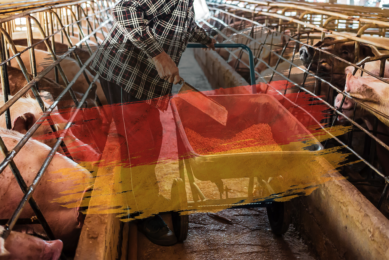French GMO labelling law to hit feed producers

The National Assembly in France has passed an amendment requiring that all “food placed on the market in France” must be labelled if any GMO products have been used in its production.
The amendment, proposed by the environmental NGO group France Nature Environment, took many stakeholders by surprise when it passed following a close vote in the Assembly last week. The proposal will impact producers across the food supply chain. The feed industry in particular is set to be hit by the change, as sourcing non-GMO feed at relevant scale is likely to be catastrophically expensive.
Impact on animal feed sector
According to the amendment, labels would have to indicate if an animal has been fed with GMOs, including “feed from animal origins fed with GMOs.” According to the text, this is specifically aimed at rectifying the current situation under which animals fed with GMOs, which constitute the majority of the French herd, do not have to be labelled as containing GMOs. The ‘Fed with GMOs’ label would apply both to basic products (such as meat products, eggs and dairy) and to products made using these constituents.
Position of France within EU
Reaction to the amendment has been mixed. Within the government, concerns exist regarding the compatibility of the proposal with EU law, with French Agriculture Minister Stéphane Travert suggesting that implementing the proposal could violate European labelling requirements and weaken France’s hand in advancing such proposals at EU level. “The fact that this matter is now enshrined in law could weaken our experimentation at European level,” he said.
“Victory for consumers”
Supporters include Barbara Pompili, current Chair of the Committee on Sustainable Development who initiated the amendment. She said the amendment would allow the government “to better value the work of our farmers,” and that it represents “important progress for consumer information (GMOs, farming methods, origin, treatments).” The vote was also welcomed by activists including the NGO CIWF France, who called it a “victory for consumers.”
Before the amendment can become law it must first pass through the Senate, where it is scheduled for review next week on 11 June. If successful, the law will enter into force for all products on 1 January 2023.











